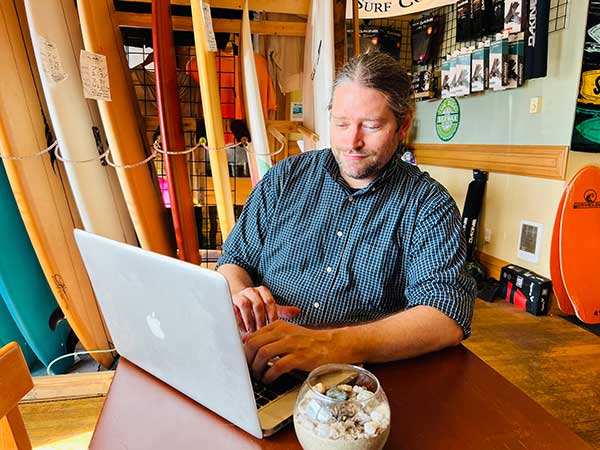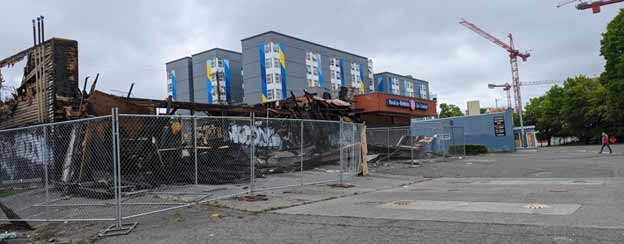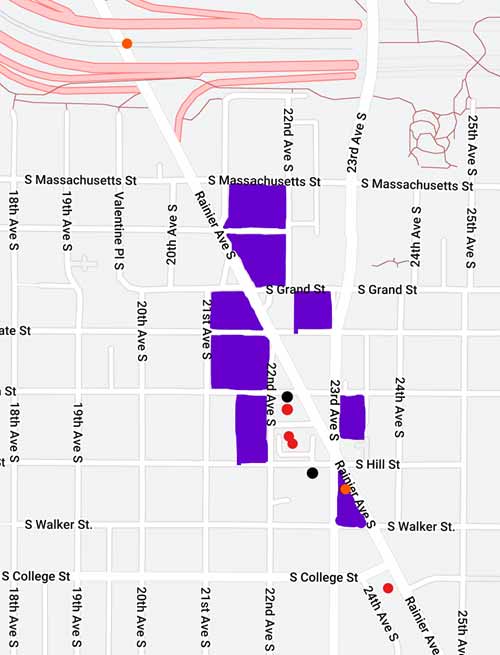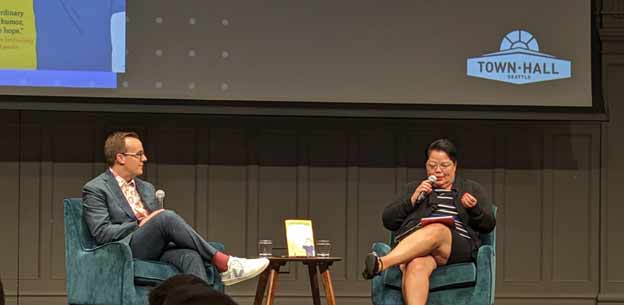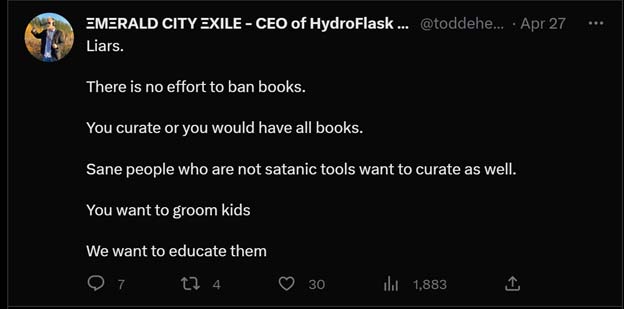Who’s Running For Seattle City Council? Meet D3 Candidate Alex Cooley
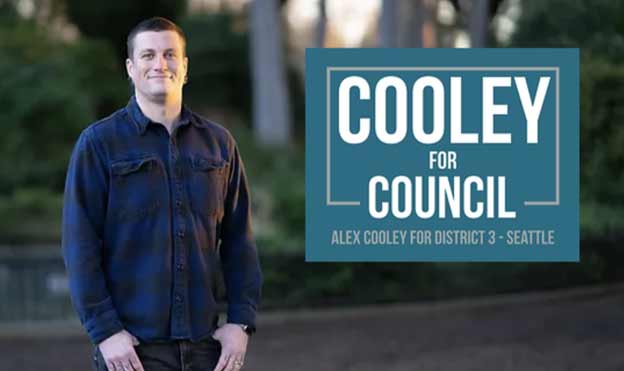
A mixture of civil libertarianism and economic progressivism, cannabis entrepreneur Alex Cooley is running for Seattle City Council in District 3.
By Connor Nash
At first glance, Alex Cooley looks like your typical Seattlite, alternative, gauges, hand tattoos, gig worker, and he has a weed business. And like many Seattlites, Cooley’s politics are both progressive and bold, meant to shake up the system.
A million square feet of new housing, banning sweeps of homeless individuals, legalizing and taxing all drugs, and shifting money from police to “alternative solutions are just a few of the ideas Cooley is advocating in the D3 race. These proposals seem like they are ripped from a Vice News Youtube video, which may be an asset in capturing those young, urbanist voters.
Like many of the former Vice News audience, Cooley’s ideas have been shaped by his growing family and expanding business. When asked why he is running for City Council, he responded, “I decided to run the day my son was born. I need him to grow up in a place where leaders behave like leaders and respond to their neighbors when they are called upon…
“We haven’t had leadership that listens. We aren’t able to trust that our elected officials will do a good job. We’ve been hindered by political games, inflexibility, indecisiveness, and special interest money. We can’t afford more of the same.”
Lack of trust in the city government isn’t a new phenomenon, but the abysmally low approval ratings are the new norm. An Oct 2022 KOMO News/ Strategies 360 poll found that the Seattle City Council had an unfavorability rating of 58%, up from 20% the year before.
To Cooley’s point on a lack of “leadership that listens,” I asked Cooley (and will ask all D3 candidates) their stance on holding office hours if elected. Current D3 Councilmember Kshama Sawant fails to hold any regular office hours, instead opting for larger, rally-like events with both constituents and supporters of her causes.
Cooley’s responded that he would “Absolutely” hold office hours, explaining “I intend to go many steps further than having office hours every week. I will hold regular town hall meetings at least quarterly, I will have weekly “Brews w/Cooley” meetings, and in general, will be in the community daily available to all.”
This openness to greater public availability and outreach is refreshing, considering the current Councilmember is extremely aloof when it comes to constituent services. This is something that I will keep a lookout for if Cooley is elected since this is a notable and bold shift from how constituent services are being run currently in D3.
Although Cooley will have a different way of interacting with constituents, some of his policies are similar to Councilmember Sawant notably on Sweeps and free transit. When asked about his overarching policy ideals, Cooley specifically cited “ending the practice of sweeps” and explains on his website that “pushing around people experiencing homelessness two blocks at a time is failing everyone.”
When it comes to public transit, like Councilmember Sawant, Cooley is pushing for more free public transit options, including “reinstat[ing] the free ride zone…” The Free Ride Zone was ended in 2012 but was an agreement between the City of Seattle and King County where Seattle would pay King Co $400,000 a year to cover all fares Downtown.
A policy area that Cooley has institutional knowledge in is cannabis since he owns Solstice, a company that sells various cannabis products. Cooley has assisted legislators on the local, state, and global levels on cannabis policies. In 2010, Cooley worked with State Senator Kohl-Wells in writing SB 5073, which created the medical cannabis industry, and later on I-502 which legalized recreational cannabis use.
Cooley also worked with the Seattle City Council to write “all of their protective legislation that allowed for safe access for patients. And in 2016, Cooley worked with the United Nations during their Special Session on Drug Policy.
When asked if the city is doing enough to support minority-owned cannabis businesses, Cooley answered “No, this city could be doing much more.”
He explained how he proposed a policy to various council members and the mayor’s office for “cannabis consumption clubs” where people can enjoy cannabis products in a bar-like atmosphere. One city that implemented a policy for cannabis clubs is West Hollywood, CA. Yes, the gayest city in Los Angeles is also the only city that allows for indoor smoking of cannabis products in both residential and commercial areas (with proper permits).
Cooley states that these cannabis clubs would be “licensed through a similar merit-based system that the state is using for their social equity retail licenses.” These clubs could be great to not only expand the opportunities for new businesses but expand the diversity in the homogenous Seattle cannabis industry.
Of all his bold, progressive policies, the one that will be the most politically polarizing is his stance on single-family zoning. In an Urbanist win, Cooley supports banning single-family zoning in Seattle. But one urbanist win is a loss for the NIMBY crowd who make a sizable constituency in D3.
In a race devoid of polling, it’s difficult to see if Cooley’s politics will appeal to enough hip, millennial dads like himself to make it to the general. What is refreshing is to see someone running on a “change the system” message without the baggage that is the norm in a Sawant campaign.
Photo Courtesy of Cooley for Council

